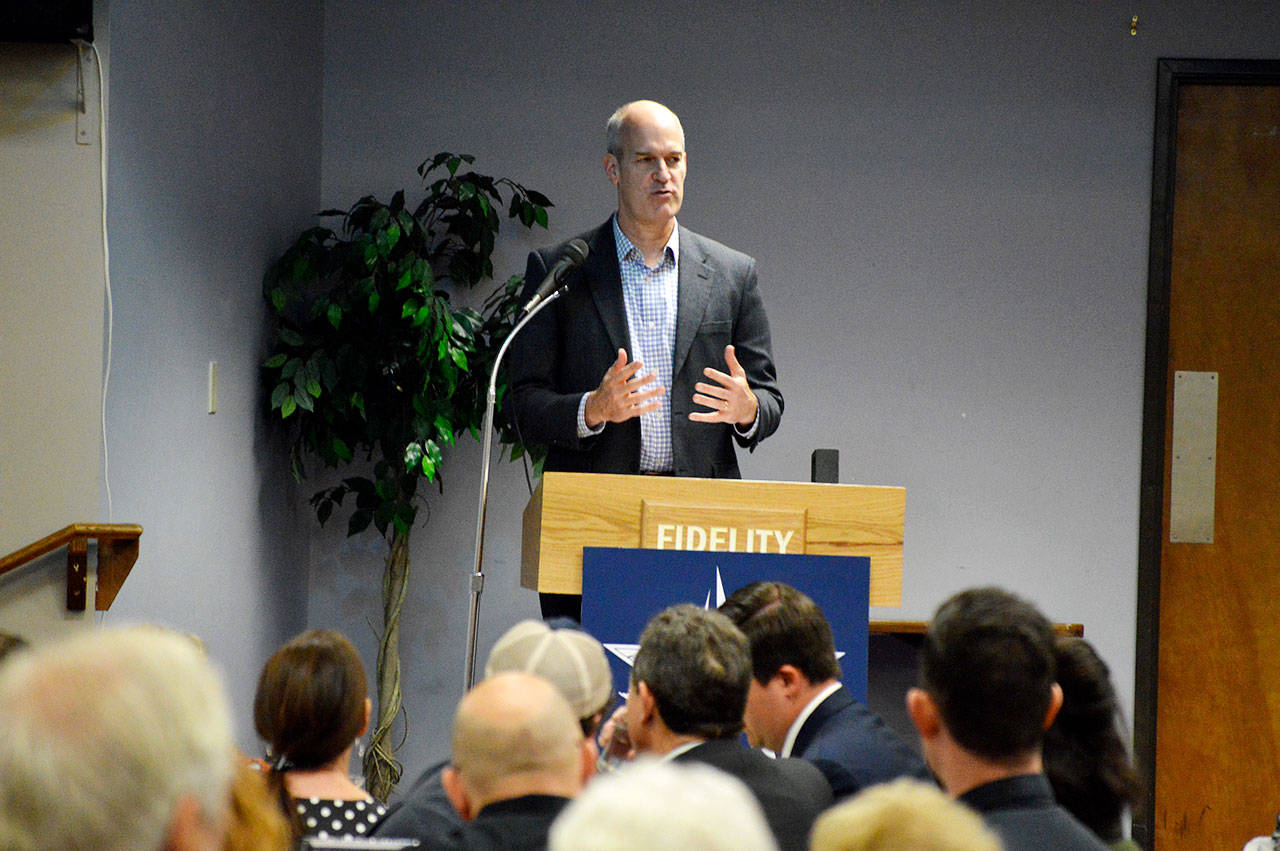U.S. Rep. Rick Larsen (D-Arlington) outlined plans for adding apprenticeship programs and setting aside infrastructure funding for mid-sized cities during an Oak Harbor Chamber of Commerce luncheon last week.
Larsen sponsored a bill to support apprenticeship programs that focus on technology and health care as well as the trades. The bill, called the Youth Access to American Jobs, directs the secretary of education to award grants for this goal to eligible entities, including local educational agencies, community colleges, a state apprentice program or a join-labor management training program.
Larsen introduced the bill in 2015, but no further action has been taken on it.
He also discussed efforts to set aside funding from larger infrastructure bills just for medium-sized cities, such as Oak Harbor. He said very small and very large cities have funding for transportation projects available, “but if you’re in the middle, like in Oak Harbor or Mountlake Terrace, you’ve got to nickle and dime your way to raise enough money.”
The congressman, who is senior member of the House Armed Services Committee, also said Naval Air Station Whidbey Island’s future is “strong, safe and secure.” He voiced his support for the presence of the EA-18G Growler aircraft at the base and the use of them in training. Larsen also acknowledged concern over the noise caused by the aircraft and said the Navy is taking steps to reduce both the amount of needed training and the noise produced.
He said the House version of the defense bill, which passed in July, secures funding for ground contamination cleanup.
The bill provides an additional $30 million for perfluorooctanic acid (PFOA) and perfluorooctane sulfonate (PFOS) cleanup and studies on their health effects. PFOA and PFOS are found in firefighting foam that’s used to put out petroleum fires, such as the ones that occur with aircraft accidents.
Asked about the tone of political discourse in the White House, and its perceived lack of civility, Larsen defended the two-party system and gave examples of bipartisan efforts in the house.
“That stuff doesn’t get covered, it’s not very sellable,” he said after giving examples of working together with Republicans in congress.
However, he said, there are structural problems with the system that make it easier for incumbents to raise money. He pointed to the Citizens United decision by the Supreme Court as a reason too much corporate money can be put into elections. He also pointed to gerrymandering of districts as systemic problem.
He said he wants to find a way to take the process of redistricting “out of the hands of the Legislature.” He said this will make the process more objective and create more swing districts.



